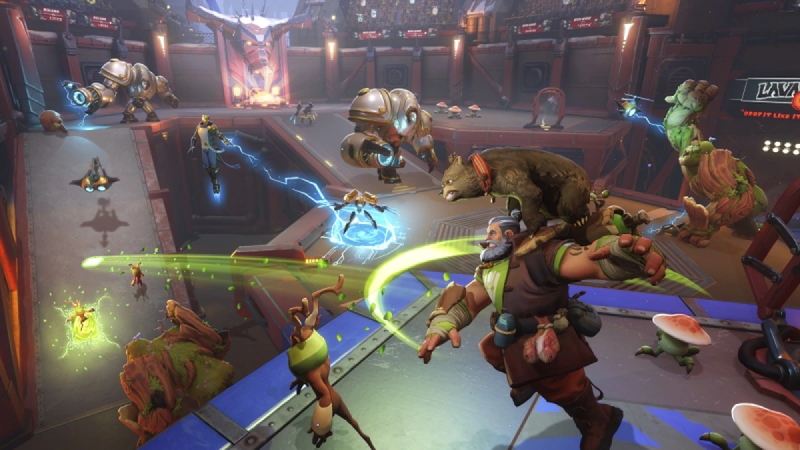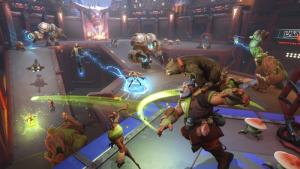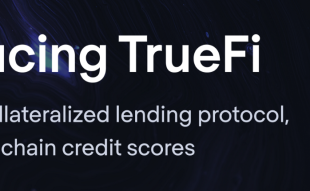Join Our Telegram channel to stay up to date on breaking news coverage
Paul Bettner, a seasoned video game producer who co-created the popular mobile game Words With Friends and contributed to the creation of the iconic Age of Empires franchise, has been working on his Web3 game Wildcard for more than five years. Finally prepared to share it with the world, he is now.
The launch of the first Wildcard public playtest is scheduled for February 23 as part of an occasion called “Melee on the Meteor.” The game is a competitive multiplayer online battle arena (MOBA) game similar to hits like League of Legends and Dota 2, which Bettner claims was created with spectators in mind.
Using the Ethereum scaling network Polygon, Wildcard offers Web3 integration, player-versus-player (PvP) games, virtual NFT cards, and real-time strategy (RTS) components.
Viewers may watch from inside the in-game 3D arena as two characters engage in a massive brawl during “Melee on the Meteor” and even earn NFT awards. The battle will take place in a virtual arena dubbed Frostburn Arena. Bettner said, in an interview with Decrypt, that:
Web3 is the technology that enables us to create an experience where the competitor can literally share incentives with their supporters live throughout the stream.
Two community testers will compete against one another in the first public Wildcard showcase. These testers were selected from the server’s Discord, which has over 30,000 verified users. Brycent and Cryptostache, two Web3 content producers, will square off in the second round, and the winners of the first two rounds will compete in the third round.
Viewers will be able to follow the matches via the game’s Discord server and may be eligible to win “Wildcard Swag,” a type of NFT collectible airdrop, or allowlist access to mint the game’s first full-fledged NFT card collection, which does not yet have a set release date for the general public.
Bettner raised $46 million in 2022 under his Playful Studios label in a deal that was co-led by Paradigm, Griffin Gaming Partners, and VC fund manager Sabrina Hahn. Wildcard is now prepared for its first moments in the spotlight following substantial community interaction and development.
The Melee on the meteor is coming.
It’s Wildcard’s first exhibition, and if you’re not there? Well, Sister, you’re going to miss it.
Here’s my personal recommendation… DON’T!
2.23.23#Wildcard #MOBA #Web3 pic.twitter.com/jl9lpJAYQ2
— WILDCARD™ (@PlayWildcard) February 10, 2023
The “Wildpaper Lite,” the game’s whitepaper, lays out Bettner and the development team’s lofty goals for the upcoming title. Esports, in the opinion of Bettner, are extremely significant to the gaming industry, and gamers watch others play video games almost as frequently as they do themselves.
Bettner and his wife Katy Bettner set out to design a game in which fans may participate in a more meaningful (and participatory) way since they were inspired by these occasionally large livestreaming and esports communities.
Taking the best from NTFs
Although Bettner has changed from being a Web3 skeptic to one who supports it, this does not indicate that everything in Wildcard will be an NFT.
In an interview with Decrypt, Bettner stated, “We’re averse to pay-to-win, as a developer,” in reference to his views on enabling players to merely purchase NFTs that provide them a quick route to the top of a game’s leaderboards.
The game’s fundamental component, virtual cards, will be available from Wildcard as NFTs. Nonetheless, Bettner is adamant that no one card can guarantee a player victory on the battlefield.
“In our game, you collect things to utilize as resources to play,” “Bettner declared. It is what enables us to create a game with valuable, collector cards but one that isn’t pay-to-win.
There aren’t any pay-to-win cards in Magic: The Gathering, really. He continued, citing Pokémon and Blizzard’s Hearthstone as other examples of competitive card games that he believes do not give the wealthiest players easy wins. “Those cards change, the meta evolves, and they have to always be walking this fine line of creating rarity and cards that are desirable but not creating a pay-to-win economy,” he said.
Limitations of Livestreaming
According to Bettner, the purpose of Wildcard was to establish a closer relationship between viewers and players by offering direct NFT airdrops in exchange for following players and participating in their content. He is well aware of the value livestreaming services like Twitch have for both players and game creators, but he wants to find solutions to some of the issues that Twitch can’t (or won’t) fix.
The meetings Bettner had with Twitch, its parent company Amazon, and the Google-owned YouTube didn’t turn out as well as he had planned, he admitted to Decrypt.
According to Bettner:
It was a little challenging because different platforms have distinct ideas about who their audience is. They consider making money off of their audience.
Bettner said that the Wildcard team became “frustrated” with Twitch and YouTube’s “limited” scope and ability to offer game spectators a more immersive and rewarding experience.
A platform like Twitch, their capacity to deliver, that is kind of limited. The real magic can happen in a video game where that moment can come to life where that fan can see themselves.
Why make it run on Web3?
Bettner said he sometimes sees Web3 as a “solution in search of a problem,” meaning that some crypto enthusiasts might be looking to add crypto wherever possible for purely philosophical or financial reasons without a substantial motive.
But in the case of Wildcard, he believes that Web3 was necessarily the solution to the game’s biggest problem.
In the future, Wildcard will let viewers see themselves in the arena’s audience as an avatar with a specific seat. From their seat, viewers will be able to snag NFT airdrops that are launched into the crowd.
“When that streamer is connected with their wallet and their fans are coming in with their wallets,” Bettner explained, “it’s literally an airdrop to do that magical moment of throwing the ball up into the stands, firing a T-shirt cannon, and having your fans be able to wear on their PFP like your brand or whatever.”
“Those are the kinds of moments that we’re able to build,” he concluded.
Related
Join Our Telegram channel to stay up to date on breaking news coverage


